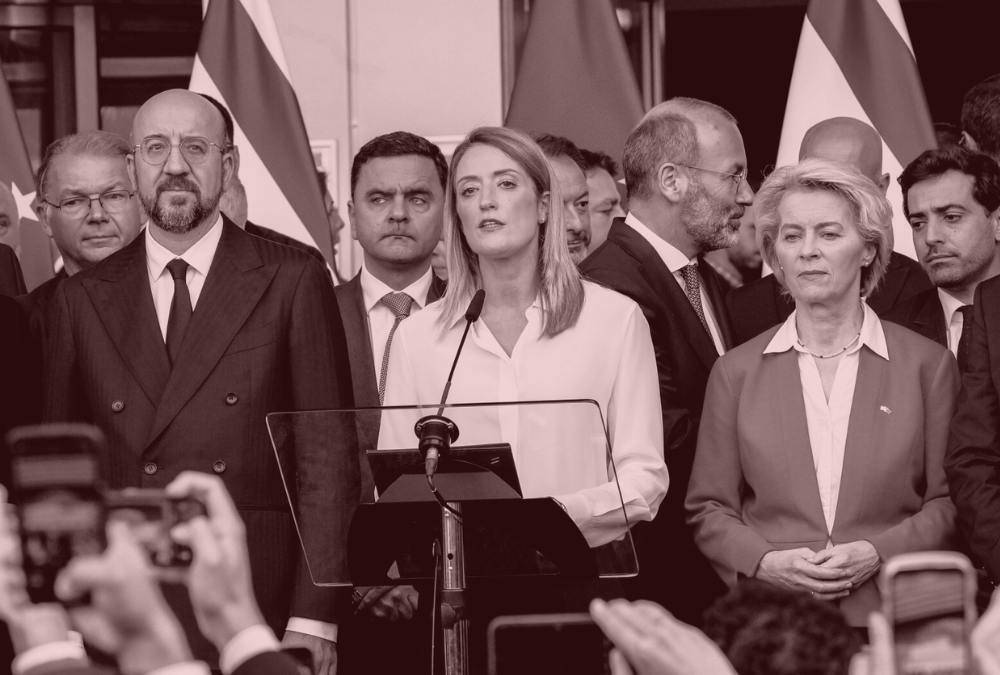If I had to attempt to diagnose the global geopolitical outlook for this year, I would describe it as the year in which we will no longer be able to pretend that we can go back to business as usual.
That is not to say that we won’t try to go back to the methods which propelled global trade and economic relations to the peaks that were reached before the COVID pandemic. In fact, as Europe goes to the polls this year, the rhetoric reflects a somewhat delusional sense that our continent is just as important as it used to be in the glory days when we’d enslave the world and plunder freely like it’s nobody’s business.
The fact is that the pandemic, the ongoing acts of aggression in Ukraine and Palestine, and now, the Red Sea crisis, have all contributed to this process of laying bare Europe’s powerlessness in the face of significant shifts. It might even be plausible to debate whether the real hierarchy of global power has ever been so shorn of European influence at its summit, influence which has now been all but dwarfed by the US, China, and Russia.
While these three major events continue raising the stakes for the global pecking order which we base our power structures on, the collective response of European member states and the entities which coalesce to represent them – that is, the European Council, the European Commission, and the European Parliament – has been quite frankly embarrassing at best and extremely infuriating at its very worst.
While the European Union’s quick pivot towards wartime policy during the first few months of Russia’s invasion of Ukraine was indeed a sight to see, cracks began to emerge as soon as it was apparent that there was a huge gulf between European member states’ munitions stocks and the constant feed of firepower that is required by troops on the ground in Ukraine.
The efficacy of the EU’s unprecedented wave of sanctions against the Russian government, which were relatively efficient for a bureaucracy of that size, petered out when Russia found ways to circumvent them, forcing the EU to consider far more dramatic escalations which include the legalistic nightmare of seizing and selling Russian assets with the intent to use the proceeds to finance Ukraine’s war machine.
As the EU’s ability to contribute to Ukraine’s survival wanes and its appetite for engagement on that front withers in the face of the upcoming European elections, the union’s political capital has been in complete disarray over Israel’s ongoing genocide in Gaza.
For context, the latest death tolls are now upwards of 23,000, and the assault is only set to intensify and expand while tensions spill over into the Red Sea region as Houthi rebels in Yemen, Hezbollah loyalists in Lebanon, and the Iranian government deliberately target Western interests in retaliation for the West’s support of Israel.
Simply put, Europe betrayed Palestine, and is now paying the price for its failure to inscrutably stand for human rights even if it came at the cost of pissing off the US’ pet coloniser in the Middle East. European capitals have been consistently swarmed with shows of solidarity bearing Palestinian flags carried by conscientious European citizens who are angry at their governments for failing to do more to prevent genocide.
While it is yet to be seen what kind of impact South Africa’s ongoing genocide case against Israel will have on the EU’s frail, divided politics on the subject, the reality of it is that the continent which was once seen as the nexus of soft diplomatic power now sits idly by as its highest representatives waste time attempting to score points off each other’s gaffes while cementing their own personal power in the process.
All in all, this god-awful pile up of one crisis on top of the other has shown anyone who is observing closely enough that there is a chasm between how bureaucrats in Brussels view themselves in the power hierarchy of the world and the actual, tangible power that they do have at their disposal in this year’s fraught political atmosphere.
The EU is woefully underprepared for a world ravaged by hostility, a total lack of equity across the board, and the predatory depredation of the unholy trinity that is made up of the US, China, and Russia. It is also underprepared when it comes to seriously taking on existential threats like climate change and the fossil fuel companies which fuel it. It is a political entity whose clout is highly dependent on whether people perceive it as an effective champion for human rights or simply as an overpaid mass of career politicians who are completely detached from reality.
With the way things are going lately, the European project seems like it is headed in the direction of the latter rather than the former.
At this stage of the proceedings, it is not just about cutting down the rising cost of inflation, or mitigating the expected financial repercussions of the green energy transition, or finding out new, heinous ways to walk the diplomatic tightrope by endorsing genocide one day and then calling for humanitarian aid the next.
For the European Union to remain relevant, influential, and effective, its leaders must remember that the only reason Europe has ever been considered better than anywhere else is the fact that human beings have generally had more rights than most other places in the world. If the EU continues to betray these principles while failing to acknowledge the evident outbreak of far-right politics within its highest echelons, it is simply making its own demise more expedient.


